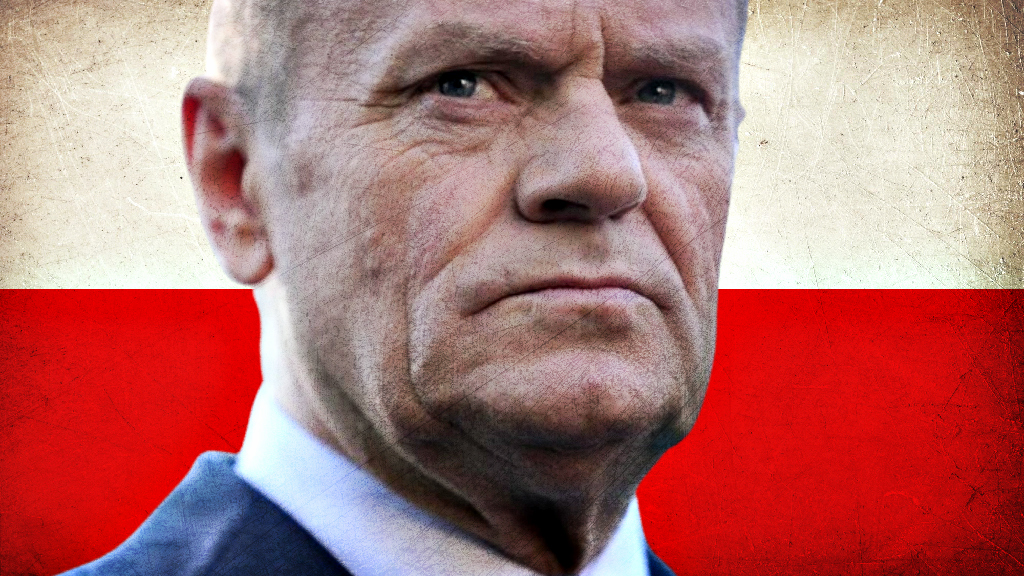When Donald Tusk, a pro-European Union and globalist figure, returned as Poland’s Prime Minister, many anticipated a comprehensive rollback of policies instituted by the prior nationalistic Law and Justice Party (PiS). Tusk indeed embarked on this mission, seeking to implement legislation aimed at progressive reforms, including abortion rights and measures addressing climate change, reflecting adherence to a globalist agenda. However, in a notable departure from expectations, Tusk’s administration has largely continued the PiS government’s approach to immigration, illustrating a shift from populist rhetoric to pragmatic governance in a complex geopolitical landscape. As mass migration remains a pressing issue in Poland — exacerbated by tensions with neighboring Belarus and challenges posed by illegal crossings — Tusk has adopted a stance that somewhat aligns with the previous government’s policies.
Recently, Poland has announced plans to temporarily suspend the right to asylum, marking a significant and controversial step not seen before among European Union nations facing migration pressures. This proposed suspension is part of a broader strategy aimed at curbing illegal immigration, largely perceived as being instigated by Belarus, which Tusk has accused of facilitating migrant flows into Poland. During a rally for his liberal Civic Coalition party, Tusk articulated his intention to demand regional recognition for this extraordinary measure, framing it as an essential response to an immense migration crisis. He suggested that the right to asylum has been misused, citing manipulation by figures such as Belarusian President Alexander Lukashenko, Russian leader Vladimir Putin, and human traffickers, who are allegedly abusing the system for their benefit.
Migration has increasingly been at the forefront of Polish politics, particularly since the onset of migratory challenges in 2021, when significant numbers of individuals, predominantly from the Middle East and Africa, began attempting to illegally cross into Poland from Belarus. Tusk’s government aligns itself with the EU’s narrative, labeling this influx a crisis orchestrated by external actors, specifically Minsk and Moscow, with both Russia and Belarus denying any culpability. As Tusk prepares to unveil his planned migration strategy at a government convening on the anniversary of his electoral victory, his administration’s policies reflect a blend of a tough stance on migration, aimed at maintaining public support, and a commitment to address the underlying issues associated with mass migrations in the region.
Despite Tusk’s array of progressive policies aimed at social reform, his administration’s hardline approach to immigration has drawn criticism from human rights advocates and organizations. Groups such as Grupa Granica, which assist migrants at the border, argue that suspending the right to asylum not only contravenes constitutional protections but could also further endanger migrants by driving them into the hands of criminal smugglers. This criticism emphasizes the ethical concerns surrounding such a drastic policy shift, suggesting that a focus on border control may overshadow the humanitarian responsibilities a nation holds toward asylum seekers. The heated debate surrounding these issues highlights the complexities of governance in an era where public sentiment on immigration remains deeply divided.
Tusk’s tough stance on migration has garnered substantial public backing in Poland, reflecting a societal consensus for more stringent border management amid security concerns. However, this approach has also triggered significant disillusionment among activists who had hoped for a more compassionate and reformative immigration policy following Tusk’s return to power. The challenges of balancing domestic political pressures with international humanitarian obligations present a nuanced dilemma for Tusk as he navigates the legacy of Poland’s nationalist government while also addressing contemporary migration issues. The growing discontent among migrant rights activists underscores the delicate equilibrium between national security interests and the fundamental rights of displaced individuals seeking asylum.
As the European Union grapples with its broader immigration crisis, Tusk’s policy directions may have implications that extend beyond Poland’s borders, potentially shaping regional responses to migration across the continent. The call for enhanced measures to protect the EU’s external borders, coupled with strident opposition to perceived lax immigration policies by scenarios such as Germany’s own border checks, speaks to a collective movement toward reinforced migration policies among member states. Tusk’s strategy may therefore align Poland with a burgeoning trend within the EU focused on restricting asylum opportunities in the face of rising migration flows, thus framing a pivotal moment in the ongoing discourse on migration management and human rights within Europe.
Ultimately, Tusk’s re-emergence as a political leader capturing both the aspirations of globalist progress and the practicalities of contemporary borders encapsulates the broader tensions between idealism and realism in governance. His dual commitment to progressive policies and strict immigration control reveals the intricate balancing act politicians must perform in the face of growing nationalism and populism across Europe. The response to Tusk’s impending announcements on migration will not only serve as a litmus test for his government’s direction but also reflect larger themes in European politics, where the challenges of migration, sovereignty, and humanitarian ethics continue to collide in an evolving global landscape.

